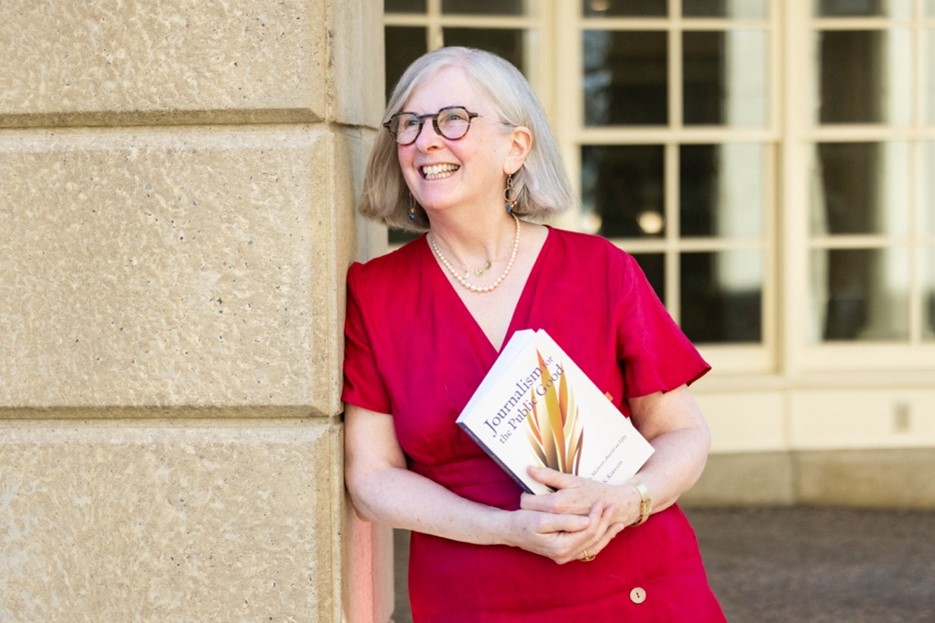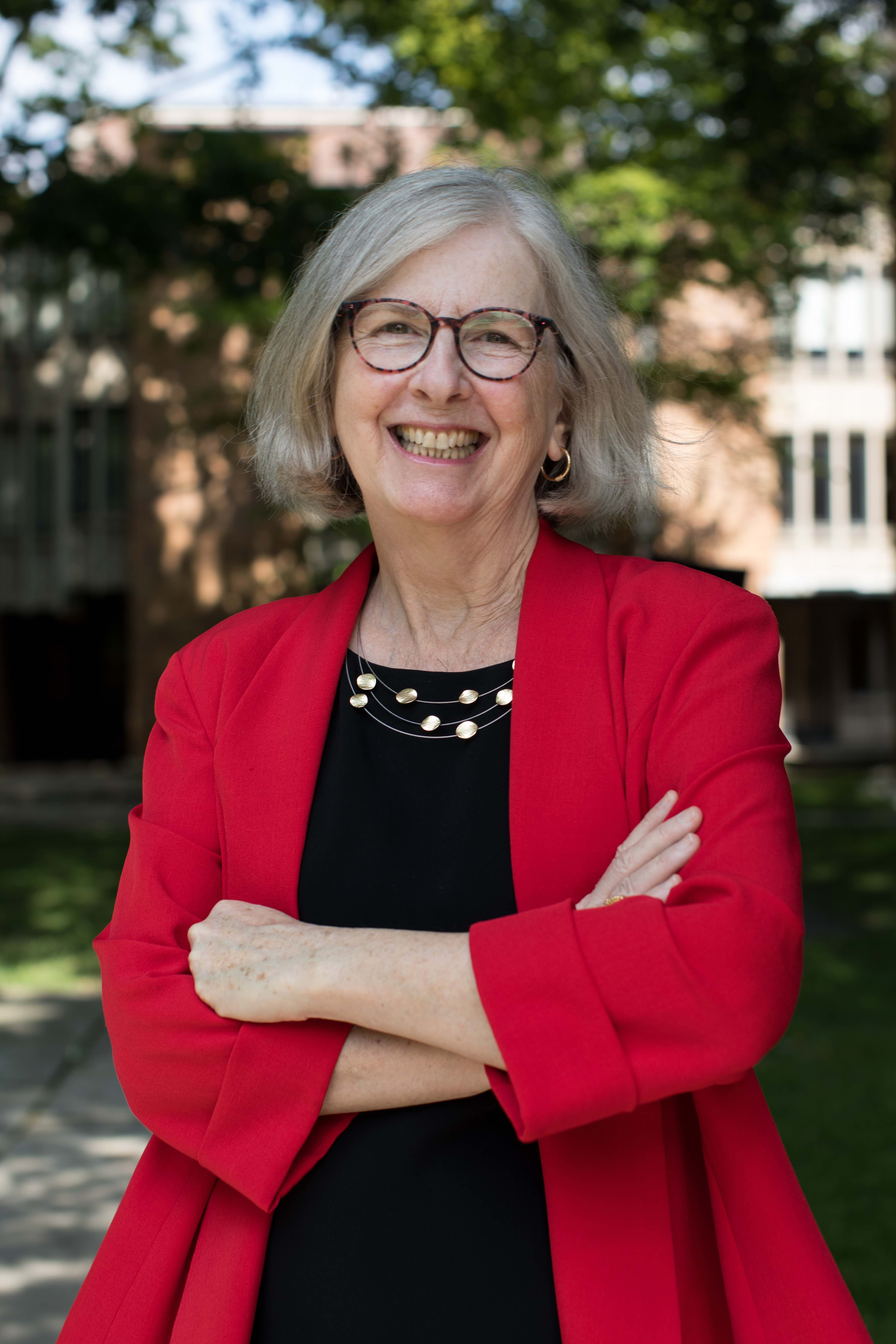
HC: You graduated from the Journalism program in 1976! Can you tell us a little about that experience?
KK: It’s actually a bit of a funny story! I originally applied for the Photography program—at the time, it was all the rage. I had submitted my portfolio, but I didn’t get accepted. Instead, the admissions office offered me a spot in the Journalism program. I thought, why not? I’d still have access to the darkroom and the Photography department’s resources. I had just turned 19 and was open to a change of plans. In hindsight, it was a fortuitous event—I was always meant to be in journalism, I just didn’t realize it yet. Looking back, even in elementary school, I was involved with the school newspaper, conducting interviews, and writing stories to report back to my class. Holland College helped ignite that passion for journalism, and looking back, I wouldn’t have had it any other way.
HC: That’s an amazing twist of fate! Can you share your journey after graduating from Holland College?
KK: Sure! After graduation, I had two job offers, which feels surreal. One was with a radio station in Charlottetown, CFCY, writing copy. The other was with a new weekly paper called The Monitor. I chose The Monitor because its editor, Martin Dorrell, had come from The Globe and Mail, and I felt I could learn a lot from him—which I did! Unfortunately, the paper didn’t last long as the publisher was more interested in advertorials, and this wasn’t what I wanted to do regardless. So, I walked up the street to The Journal Pioneer and handed in my resume. They hired me on the spot, and I spent almost two years there.
Then, in March 1977, CBC opened a radio station in Charlottetown, and many of us “print folks” applied. I got the job, even though I wasn’t particularly into radio at the time. But with a $25-a-week raise, I could afford a car! I was only 21, so that was huge. I worked on the Information Morning show for a while before my boss encouraged me to pursue further education. That’s when I moved to Halifax to attend the University of King’s College. I was able to work 30 hours a week at CBC Halifax while studying, which helped pay for my education while at King’s. After graduation, I returned to Charlottetown to work in the CBC newsroom.
HC: You’re now an Inglis professor at the University of King’s College and a Senior Fellow at the University of Toronto. Can you tell us more about those roles?
KK: Yes! I’ve taught journalism, served as Director of the School of Journalism, and later as Vice President at the University of King’s College. I retired in 2021 and was honored with the title of Emerita professor. Around that time, I was approached by Massey College at the University of Toronto to become a Senior Fellow. The principal wanted me to lead communication workshops for graduate students, particularly non-journalists, to help them better communicate their research.
I also started a podcast with them called JCR: A Massey Podcast, where non-journalist students can talk about their research and interview people in their fields using just their phones. We just kicked off our third season in September, and it’s a lot of fun! I now spend much of the academic year in Toronto. In many ways, this phase of my career feels like a second childhood. During my own post-secondary education, I worked 30 hours a week, so I didn’t get to fully experience being student. Now, I’m finally getting to experience student life and all the rich conversations that come with it.
HC: Was there a particularly challenging moment in your career, and how did you handle it?
KK: One moment I can think of was early in my career at CBC. I was an editor working behind the scenes when they asked me to start reading the news on air. I was completely unprepared and felt physically sick with nerves, but I did it anyway. At one point, my supervisor said my delivery was too cold, and I wasn’t sure how to fix it. They sent me to a trainer who gave me an odd but useful piece of advice: “Think broccoli.”
He explained that sometimes people tell you things and what they say makes as much sense as saying “broccoli.” He also assured me that my “good afternoons” were fine, and his words gave me the confidence I needed to continue. That experience taught me a lot about guiding others. Now, as an editor and professor, I make it a point to help people find their voice and confidence. None of us arrive fully hatched into our professions—we grow into our careers and selves over time.
 HC: That’s such a great lesson! What has been the most rewarding part of your career?
HC: That’s such a great lesson! What has been the most rewarding part of your career?
KK: Without a doubt, working with young reporters and students is the most rewarding aspect of my career. I love seeing them grow and succeed. We just had a 25-year reunion at King’s, and reconnecting with former students was wonderful. Every now and then, I get emails from people I taught, telling me how much of an impact I had on them. That’s incredibly rewarding.
HC: You recently published a book called “Journalism for the Public Good: The Michener Awards at Fifty.” What inspired you to write it, and what was the process like?
KK: My book was a sabbatical project, focusing on the history of investigative journalism through the lens of the Michener Awards, Canada’s equivalent of the Pulitzer Prize. I’ve been involved with the Michener Awards Foundation for years and realized that many people didn’t know about the incredible journalism being honored. Writing the book was my way of celebrating and preserving that legacy of investigative journalism, especially in a time when fewer media outlets have the resources for deep investigative work.
HC: How did your time at Holland College influence your career?
KK: Holland College gave me a strong foundation—how to write a lead, structure an interview, even some shorthand. It also gave me creative space, whether in the darkroom or writing stories. Most importantly, it introduced me to community journalism through internships, which was crucial in shaping my love for the field.
HC: Do you have a favorite memory from your time at Holland College?
KK: So many! One that stands out is hosting my own radio show on the college’s internal station, playing my favorite music every week. Another fond memory is the Halloween party, where we’d all get dressed up and parade in the gym. It was a wonderful time for bonding with classmates.
HC: Finally, what advice would you give recent graduates entering the workforce?
KK: My advice is to embrace change. When I started, we used manual typewriters, and over the years, I had to adapt to new technologies—electric typewriters, computers, digital media, and more. The lines between print, broadcast, and online media have blurred, and I ended up doing it all—audio, video, writing. Today’s young journalists are entering an exciting time with endless possibilities. Stay open to learning, have fun, and enjoy the journey!